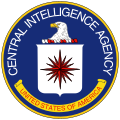History
The division was formed in 1991 by the merger of the CIA's Foreign Resources Division and the National Collection Division. [3]
The Domestic Resources Division was created in 1963 as the Domestic Operations Division and given the responsibility for clandestine operational activities of the Clandestine Services conducted within the United States against foreign targets. Its eventual function was to locate foreign nationals of special interest who resided in the United States and recruit them to serve as CIA assets when they returned home (or to some other foreign location).
The National Collection Division collected intelligence from U.S. residents who had traveled abroad, including scientists, technologists, economists, and energy experts returning from foreign locations. [4]
This page is based on this
Wikipedia article Text is available under the
CC BY-SA 4.0 license; additional terms may apply.
Images, videos and audio are available under their respective licenses.

